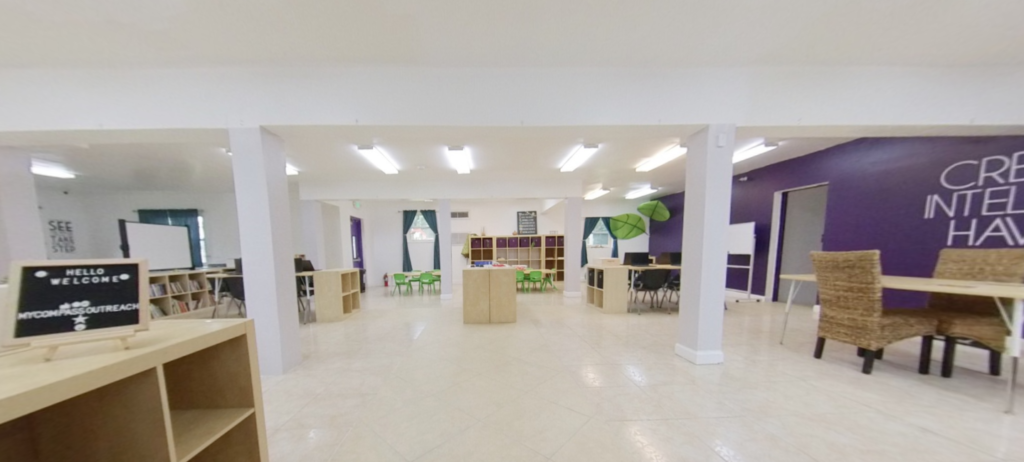
The text on the website banner of Children’s Educational Services, a North Florida non-profit company that operates private schools, broadcasts this message to families:
“You should have peace about where your child goes to school. Your child’s future is too important to remain uncertain about their education.”
As school districts continue to push back reopening dates amid uncertainty about when and how they will reopen (here, here and here) and a state order to reopen brick-and-mortar schools is facing a court challenge, some parents are feeling anything but peaceful as they search for options.
Many families want – or in the case of working families need – in-person instruction, with the expectation that schools will ensure their children’s safety. In Palm Beach County, where the number of COVID-19 cases continues to climb, 54 percent of parents expressed support for in-person instruction in a district survey. About two-thirds of Marion County parents recently said they planned for their children to return to the classroom.
While some families are joining together to form pandemic pods, pooling their resources to hire a teacher for in-person instruction at home, this can be a costly option that’s out of reach for families with more modest incomes. Many of those families, though, are turning their attention to a new idea: transferring their children to a private school, in some cases with assistance from a state scholarship.
It’s the proverbial “win-win.” Private school numbers have dipped since COVID-19, creating more space. Families want their children in a “real” classroom with adequate social distancing.
San Jose Catholic School in Jacksonville, which serves students from 3-year-old pre-kindergarten through eighth grade, is eager to let families know space is available for their children – and that they accept scholarship students.
“We want to make sure that finances do not stop anyone from attending,” said principal Jenny Studer.
In addition to accepting students who are eligible for the Florida Tax Credit Scholarship and the Gardiner Scholarship, two programs administered by Step Up For Students, which hosts this blog, San Jose offers its own financial aid programs. The school accepts students regardless of their religious beliefs. About 20 percent of those currently enrolled aren’t Catholic, Studer said, adding, “Our doors are open to all.”
San Jose’s student-teacher ratio of 17 to 1 makes it attractive to parents seeking a safe environment, Studer said. Classrooms are large enough that children can be seated with more-than-adequate social distancing. Other safety measures include temperature checks for staff and students, water bottle refill stations, limits on restroom occupancy and an isolation room for those who show virus symptoms until their parents can pick them up.
The school employs its own cleaning staff, and plans are in place to sanitize high-touch areas frequently throughout the day. The entire campus will be cleaned at the end of each school day.
Seats also are open at six K-12 schools operated by Children’s Educational Services. Campuses are in Jacksonville, Lakeland, Tampa, St. Petersburg, Zephyrhills and Bradenton.
“We have a fantastic program at all CES schools and want as many children to experience it as possible,” vice president Andy Uprichard said, adding that the school accepts all state scholarships. Like San Jose, the organization has its own financial aid programs for families who need assistance above what their scholarships will cover.
Uprichard said about 30 students from public schools have enrolled over the summer across the six campuses, and more parents are calling every day.
“They’ve heard how organized we are, how prepared we are and how we’re being direct about the situation at hand, and they feel like they can trust us,” he said.
Last spring, the schools averaged 12 to 15 students per class. This fall, with some families choosing the school’s optional online program, there will be more opportunities for social distancing, Uprichard said.
Other safety features he cited include staggered drop-off and dismissal times, extra handwashing and sanitizing stations, extra cleaning, temperature checks, face masks and air purifiers.
In South Florida, where most of the state’s coronavirus cases have been concentrated, parents are checking out Compass Outreach and Education Center in Fort Lauderdale. Founded in 2017, it offers a host of options for learning, including full-time in-person micro-school instruction, a homeschool hybrid and virtual education.
Everything takes place in a large one-room schoolhouse and across a half-acre of lush, green land that serves as an outdoor classroom. That area will be used for math and language arts classes as well as for outdoor activities. Indoors, children will be seated two to a table at opposite ends. Students will wear masks indoors as per the latest orders from the Centers for Disease Control and Prevention. Staff will be required to wear masks all the time.
“We’ve been giving tours non-stop,” said Laurel Suarez, president and CEO of the micro-school, which emphasizes entrepreneurship, nature education and a student-centered approach to learning for students in kindergarten through sixth grade. “A lot of those coming from the public school are looking for viable alternatives, even if its three days a week so they can work.”
Like San Jose and the schools managed by Children’s Educational Services, Compass accepts students on state scholarships, as well as other forms of financial aid.
As of Wednesday afternoon, Suarez said, 15 spots were still available.


